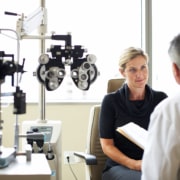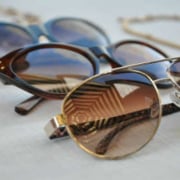3 Basic Ways to Prevent an Eye Infection
Taking good care of your vision doesn’t have to be hard and preventing eye infections is even that much more simple. With a few basic tips, you can keep your eyes free from bacteria and infection for the rest of spring and into summer— giving you more time to enjoy what you love doing, comfortably.
Tip #1: Wash Your Hands
One of the best things you can do to prevent the spread of bacteria to your eyes is to wash your hands before you do anything like touch your face, put on eye makeup, take off eye makeup, put in contacts, take out contacts, or try to get something out of your eye. Germs and bacteria from your hands can quickly spread across your eyes and cause an infection.
Tip #2: Get Rid of Old Mascara
You should replace your mascara every three months. Research says that after about three months of use, mascara starts to grow harmful bacteria on it which can lead to eye infections and more.
As another side tip, never share mascara with anyone— even if you’re related.
Tip #3: Wash Eye Makeup Brushes
Just like mascara, makeup brushes are also a breeding ground for germs and bacteria. Luckily, real animal hair makeup brushes and even many synthetic brushes can be washed with hot water and soap. Try to wash your brushes every few weeks. To wash them, run them under hot water until they are damp. Then take a small amount of antibacterial soap and gently rub it into your brushes. Rinse and repeat until the water runs clear, and all of the makeup is off the brushes. Lay flat to air dry.
Another way to protect your eyes? Schedule regular eye exams with Dr. Jeffrey Mahara. Ready to schedule your next eye exam? Call us today: 808.955.3937.






 Having good eyes isn’t just about having good vision. In fact, having good eyes includes taking care of the skin around them as well. As one of the most sensitive parts of your face, the skin under and around your eyes often gets neglected— leaving patients with dryness and more visible fine lines and wrinkles. One of the best and easiest ways to protect this sensitive skin is to use an eye cream both morning and night. However, with so many different options available at drugstores and department stores, it can seem a bit overwhelming. To help you find an eye cream that will do your eyes wonders, look for one that contains these ingredients. Read on to learn more.
Having good eyes isn’t just about having good vision. In fact, having good eyes includes taking care of the skin around them as well. As one of the most sensitive parts of your face, the skin under and around your eyes often gets neglected— leaving patients with dryness and more visible fine lines and wrinkles. One of the best and easiest ways to protect this sensitive skin is to use an eye cream both morning and night. However, with so many different options available at drugstores and department stores, it can seem a bit overwhelming. To help you find an eye cream that will do your eyes wonders, look for one that contains these ingredients. Read on to learn more.






 With spring in full bloom, so are allergy causing things like dander and pollen. If you suffer from seasonal allergies and are noticing that your eyes are suddenly extremely dry and itchy, try these following tips to help you to get back to feeling like your normal self once again. Read on to learn more.
With spring in full bloom, so are allergy causing things like dander and pollen. If you suffer from seasonal allergies and are noticing that your eyes are suddenly extremely dry and itchy, try these following tips to help you to get back to feeling like your normal self once again. Read on to learn more.


